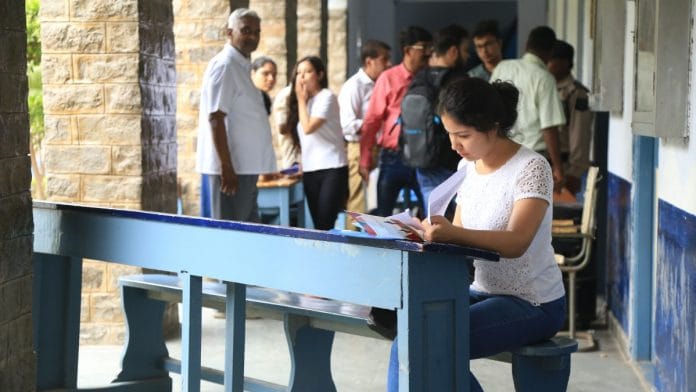Depending on the SC verdict, Delhi University may have to replace 1,000 ad hoc teachers immediately or mid-session.
New Delhi: Uncertainty over teacher appointments threatens to disrupt classes as Delhi University (DU) gears up for a fresh academic year next week, with a very real possibility that the administration may have to replace up to 1,000 ad-hoc professors mid-session.
On 20 July, the day the university opens, the Supreme Court is expected to pronounce its verdict on a controversial University Grants Commission (UGC) order tweaking the criterion for SC, ST and OBC quotas in staff appointments.
Issued this March, the UGC order sought to change the existing system in which the number of reserved posts is determined by considering the institution — college or university — as one unit. The UGC ordered every department instead to be considered a unit.
Simply put, instead of calculating the posts as a percentage of the entire staff of a university, the UGC wanted the calculation based on department strength.
The UGC order, which followed an Allahabad high court directive upheld by the Supreme Court, triggered an immediate backlash. Several stakeholders alleged that it would shrink the pool of posts available for reserved candidates, and the government subsequently filed a review petition in the apex court.
The Allahabad High Court had struck down the institution-wise quota system on the grounds that it bred an unequal distribution of quota beneficiaries, where often some departments ended up having none.
Which way the Supreme Court verdict sways is likely to affect hiring in universities across the country, but DU will be hit particularly hard on account of its high share of ad-hoc teachers. There are 4,500 ad-hoc teachers in the university who need to be reappointed every 89 days.
If the court rules in favour of the UGC order, close to 1,000 teachers are likely to be excluded from the purview of quotas, which will require fresh appointments while the session is underway.
In order to be prepared for such an eventuality, DU has already asked all its colleges to prepare a list of faculty reservations in keeping with the department-wise system.
“There are three scenarios currently. One, if the court decides in favour of the department-wise system, close to 1,000 teachers will have to be replaced because they will not be able to get a post,” said a DU professor familiar with the developments.
“This scenario will mean chaos… as half the university is run by ad-hoc teachers,” the professor said.
“In the next scenario, if the court asks colleges to go back to the original system of appointments, things will remain undisturbed… But the third scenario is the court setting another date of hearing, which would again mean hiring on the basis of the department-wise roster, because the human resource development ministry has not said a clear no to hiring under that system,” the professor said.






